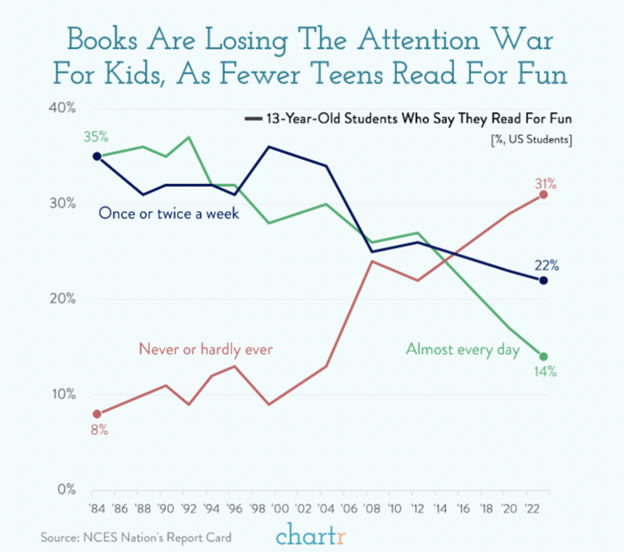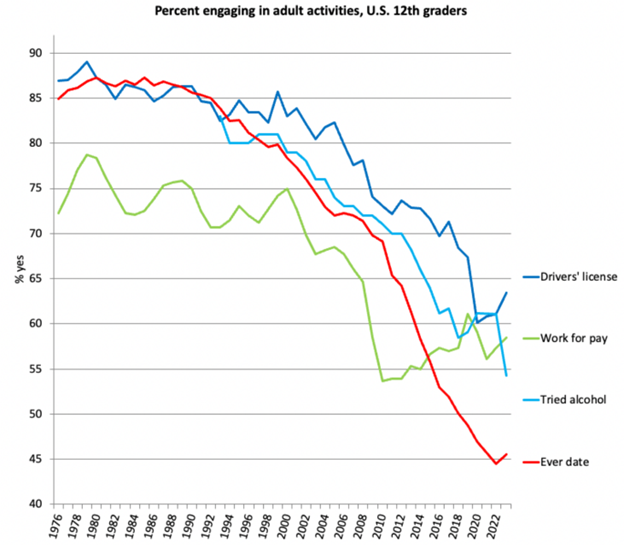Kids Today
I worry about them.
I came across some X posts by a woman named Jean Twenge, who apparently has written books about teens and social media use and such. No, I don’t spend time on X, I got sent to her posts by something I was reading in The Free Press. She had some interesting – worrying, actually – graphics in a couple of posts which I thought worth sharing here. I might buy one of her books, based on this – speaking of which, this first graphic is indeed distressing, at least to a confirmed book reader like me.

And here is what I dislike about X posts. The caption on this graphic refers to ‘books’ losing kids attention, but the description of the data being depicted refers to 13-year-olds ‘reading for fun’. Does that mean reading books for fun? Not clear to me, but books are certainly one thing one could read for fun, so this big drop between the 80s and now is not a good sign, in any case.
Having fun is important, and so is maturing. This may be something today’s kids are having a hard time doing. Here’s another of her graphics:

I have seen other stats like this in other places. It all points to youth taking longer to grow into adulthood, another disturbing trend. Now, a certain kind of person – we know who they are – might well look at this and say:
‘Fewer kids are trying alcohol, well that’s just great.’
and…..
‘Fewer kids are getting driver’s licenses, that’s just what we need to combat climate change.’
and….
‘Less teen dating means less teen sex, that has to be good.’
and….
‘High-schoolers should not be working for pay, they need to concentrate on their schoolwork.’
To those people, I say #$&^!!
Young people have to try things, test themselves, confront the world, it is part of how they learn about themselves and mature.
But that’s me.
And then there is the graphic below, which is from a study in The Lancet, a very prestigious British medical journal which has managed to publish a fair bit of bullshit over the previous decade.

The key question one must ask about such a graph is – what is causing what? That is, does high use of social media induce clinically significant depression in young people (particularly girls) or is it the case that being clinically depressed (for whatever reasons) causes one to spend more time on social media? Either seems plausible, up front, and I will say my own bias is toward door #1, but because this data is from a cross-section of teens in the UK, there is nothing in such data that can sort that out.
To their credit (I downloaded the study) the authors are aware of this issue, and say they have evidence that it is the first direction of causality that is most likely, but by no means certain. It’s complicated, indeed.
I have grandkids. I worry about their generation. I am also very glad that I am no longer a parent of young kids.